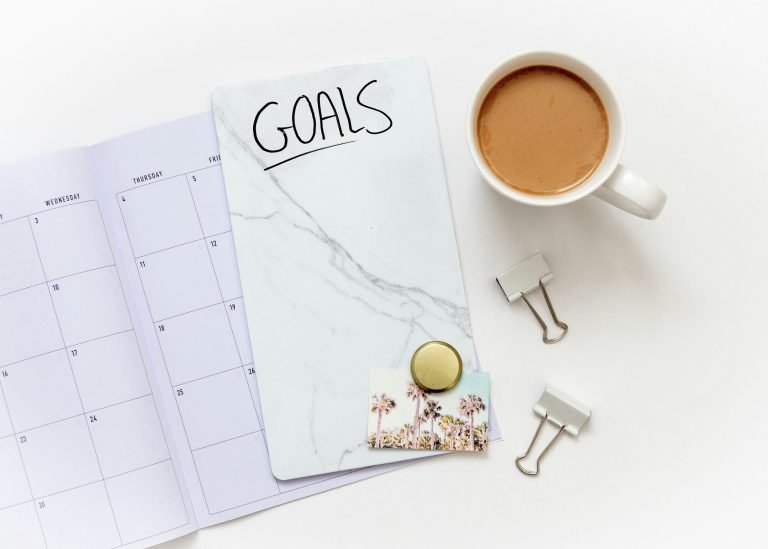Building a routine that works for you shouldn’t be about forcing yourself to do things you don’t want to do, but instead it’s all about creating a daily routine that feels right, makes you feel happy, and leaves you feeling as though you’ve accomplished something, no matter how small that something might be. With that in mind, here are some useful tips to help you build a routine that works for you – keep reading to find out more.
Start With What Already Works
Everyone has certain routines that work for them, even if they don’t realize it. That’s why, when you want to build a routine that works for you, it makes sense to look at the habits you already have that you enjoy and feel good about because they can be the basis of your new routine. And it really could be anything from the morning cup of coffee you make in a certain way at a certain time to the evening walk you take with the dog after dinner, and so on. These things might seem small, but they’re handy clues to help you build a great routine.
In other words, use these current habits as your starting point and build something bigger from there – you can use what you already do as a kind of anchor and then work out from there, and soon you’ll have a routine that really works and that you’re totally happy with.
Balance Structure And Flexibility
A good, solid routine shouldn’t make you feel trapped, and that’s the mistake a lot of people make – they come up with a great routine, but other time it can become boring or they might start to get stressed when they can’t complete it, and that’s the opposite of what you should be feeling and it’s not why you’ll be making the routine at all.
That’s why it’s important to have a routine that includes some room to move and change things when you need to – a good example would be exercise; you know you want to work out three times a week, but you don’t set the exact days and times, leaving that element more flexible so it fits in with your plans or your energy levels (which is an important thing to keep in mind). The key is to strike a good balance – you’ll want enough structure to keep you productive but you’ll want to be flexible enough to keep you interested and not make you feel stressed out because you have to do something.
Make Your Wellbeing A Priority
Look at your schedule and consider what’s currently a priority – it’s probably something like work or some other kind of chore that seems important. And while that might seem like the right thing to put first, the fact is that you should be prioritizing the activities that make you feel genuinely good. Work is important, of course, but it shouldn’t take over everything, especially if it makes you feel bad or stressed, whereas the things that make you feel good can really make a difference in your life. Get your work or other things done, but don’t make them the be-all and end-all of your life.
For some people, managing mental wellness is an important part of their routine, so adding some professional support into your weeks can be exactly the right thing to do – you can get help and advice about therapy, medication like ketamine infusion therapy, or whatever else it is that’s going to help you, and making time for this kind of professional assistance in your routine could be precisely what works for you and makes your life better as a result.
What Are You Non-Negotiables?
A good routine is a mix of necessary things and lovely self-care rituals that you refuse to skip, and these are what you might call your non-negotiables. In other words, they’re the things that make you feel good and balanced, no matter what else might be going on around you. And these things could be anything at all, from a workout at the gym, journaling every night before bed, or taking some dedicated time to be with your family that you never cancel.
It’s important to work out what these things are for you and then make sure they’ve got a place in your daily or weekly routine – and that they stay there. They’re called non-negotiables for a reason, and everything else you do has to work around them, not the other way around. And don’t feel guilty or selfish for wanting (or needing) to do these things either – if they’re what makes you happy and improves your life, they’re absolutely the right way to go as long as you balance everything out around them.
Try Time Blocking
If you often feel overwhelmed by the endless list of tasks in front of you (and let’s face it, who doesn’t feel like that at least some of the time?), time blocking could be a handy tool that helps you organize things and feel less stressed about it all. Time blocking basically means setting aside specific chunks of time for particular activities, like blocking off one hour in the morning for doing more focused work or 30 minutes in the evening for reading or exercise and so on.
The great thing about time blocking is that it means you don’t have to make a decision about what to do – it’s all laid out for you, and you know exactly what you’ll be doing from one hour to the next. Of course, you’ll also need to be a little flexible with it, as we said above, otherwise you’ll get more stressed rather than next if you’re unable to do what you’re meant to be doing or something overruns, for example, but that’s all part of the plan. In the end, time blocking is something that can give you a lot of control over your day, and that alone can reduce stress, so it’s got to be worth trying out.


































